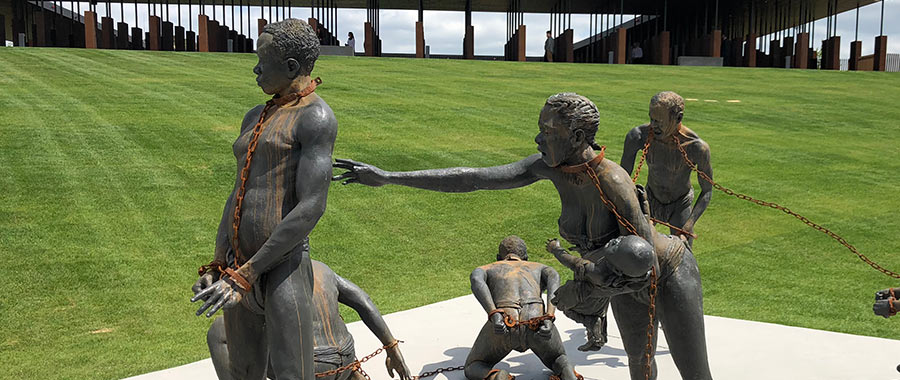Understanding the multifaceted nature of racism is akin to traversing a dense forest. Each path taken reveals new perspectives and insights, yet often leads to confusion and disorientation. The Bahá’í teachings offer a comprehensive framework for deciphering the complexities of racism, illuminating its roots and suggesting pathways toward a more harmonious existence. This exploration, prompted by a week of introspection and education, unveils profound revelations about the pernicious nature of racism and the spiritual imperative to counteract it.
The first guiding principle emerging from this enlightening journey is the inherent oneness of humanity. This foundational tenet posits that regardless of race, ethnicity, or nationality, all individuals belong to a single human family. The metaphor of a vast tapestry comes to mind, intricately woven with diverse threads. Each color and texture represents a unique cultural identity, yet the strength of the tapestry lies in the unity of its fibers. The Bahá’í perspective urges individuals to recognize this interdependence, fostering an appreciation for the richness that diversity brings to the human experience.
Progressing deeper into the forest of understanding, one encounters the concept of prejudice as a pervasive blight that hampers human development. Prejudice is often likened to a fog that obscures one’s vision, distorting perceptions and fostering ignorance. Individuals may find themselves navigating through life surrounded by this fog, believing falsehoods about others based on superficial characteristics. The teachings emphasize the importance of education as an antidote to this fog; knowledge serves as a lantern, illuminating the path toward understanding and revealing the inherent dignity of every individual. Engaging in education about different cultures and histories is vital to dispelling the misconceptions that feed prejudice.
An exploration of racism must also confront the socioeconomic ramifications it engenders. Discrimination is not merely a social ill but an injustice that permeates economic structures and opportunities. This structural racism can be likened to a river with diverging tributaries: some paths lead to abundance and prosperity, while others remain parched and neglected. The Bahá’í teachings advocate for justice and equity, urging followers to challenge unjust systems that perpetuate inequality. Material prosperity must not be the sole criterion of success; rather, the well-being of the entire community should take precedence. This perspective promotes a society where opportunities abound for all, free from the fetters of racial discrimination.
The week of deeper understanding further reveals that the antidote to racism lies in active engagement and transformation. It is insufficient to merely recognize the existence of racism; one must be propelled into action. The analogy of a gardener nurturing a garden emerges here—a garden requires ongoing care, cultivation, and vigilance to flourish. Eradicating racism necessitates persistent efforts to cultivate empathy, compassion, and understanding. Bahá’í teachings assert that every individual has a role to play in this vital quest. Whether through dialogue, advocacy, or community-building initiatives, each action compounds, akin to drops of water nurturing the roots of a shared humanity.
During this week of introspection, the importance of spiritual principles comes to light. Love, compassion, and forgiveness are indispensable tools in combating racism. The images of a warm embrace or a guiding hand evoke the essence of these virtues. The teachings resonate with the idea that true transformation occurs not from the desire to win arguments but from the authentic wish to uplift and empower others. The expression of love transcends differences, creating bridges where once there were walls. The Bahá’í framework reminds us that fulfilling the potential that lies within humanity is an act of love directed toward the collective.
An essential aspect of this discourse involves acknowledging one’s biases and complicity within an oppressive system. This self-reflection may feel daunting, akin to gazing into a mirror and confronting unpalatable truths. However, it is through this process of honest reflection that growth can occur. The teachings remind followers that humility is essential when embracing the reality of systemic racism; acknowledging one’s position is the first step toward fostering understanding and change. The path to enlightenment requires individuals to embrace discomfort as a teacher, guiding them toward a deeper understanding of themselves and their role in perpetuating or dismantling systems of oppression.
In conclusion, the week dedicated to grasping the intricacies of racism fundamentally reshapes the lens through which one perceives the world. The Bahá’í teachings, steeped in the principles of unity, justice, and love, act as a guide through the labyrinth of human experience. Just as a phoenix rises from the ashes, so too can humanity transcend the limitations of racism, awakening to a shared destiny rooted in collective dignity. This transformation hinges on education, courage in the face of prejudice, and a relentless commitment to justice and equity. The journey may be arduous, yet it is one laden with promise—a promise of a world where every individual is cherished for their unique contributions and where the vibrant tapestry of humanity thrives in glorious unison.
